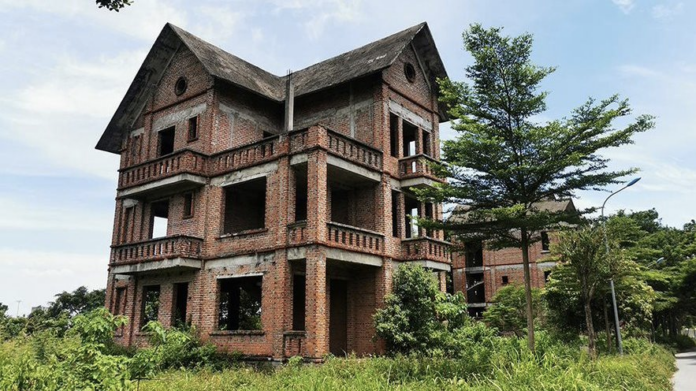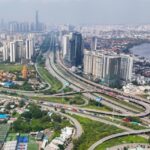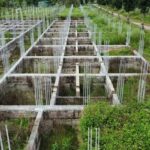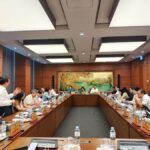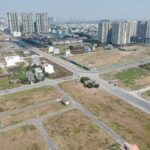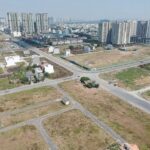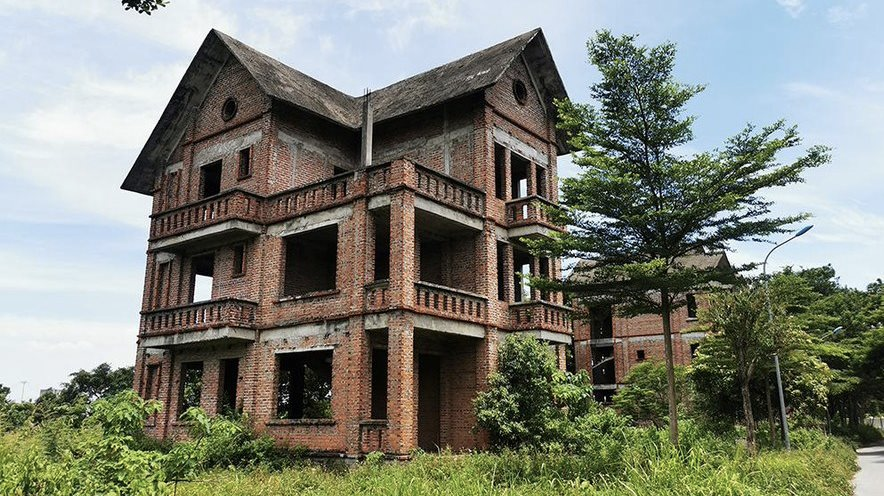
Taxing real estate aimed at accumulators and speculators instead of buyers for living or production purposes is a way to increase budget revenue, regulate the real estate market, and follow the global trend.
During a working session with ministries, associations, banks, and businesses regarding the real estate market situation, Prime Minister Pham Minh Chinh instructed the Ministry of Finance to urgently research and issue policies on real estate taxes for unused land and housing, as well as price differences.
Mr. Nguyen Van Dinh, President of the Vietnam Real Estate Brokers Association (VARS), evaluated that the situation of “abandoned houses,” “vacant villas,” and “ghost urban areas” is prevalent in major cities. This ironic situation has led to a waste of land resources and social injustice, as most of the housing supply continues to fall into the hands of financially advantaged individuals, many of whom are accumulators.
According to Mr. Dinh, speculation and investment in Vietnam are not clearly distinguished. Buying real estate for living, renting, or transferring is legal and inherent in the market mechanism, with individuals taking responsibility for profits and losses. However, uncontrolled buying and selling have led to land fever. Speculation in real estate to drive up prices for higher profits is a common practice.
“Taxing real estate aimed at accumulators and speculators instead of buyers for living or production purposes is a way to increase budget revenue, regulate the real estate market, and follow the global trend,” said Mr. Dinh.
Sharing with the press, Prof. Dr. Dang Hung Vo, former Deputy Minister of Natural Resources and Environment, analyzed that some people suggested learning from Singapore to tax the second house, but Vietnam’s situation is different. There are cases where the first house is of great value, and the second house is of little value, so it doesn’t make sense to tax only the second house and ignore the first one.
Some countries levy a tax of 1-1.5% of the value on all cases of housing and land ownership. However, with Vietnam’s low-income population, such a tax rate would be unbearable. Therefore, Prof. Dr. Dang Hung Vo suggested studying a tax suitable for Vietnam, which could be based on the value or area of ownership, ensuring both anti-speculation and social security.
Regarding the real estate tax options, Mr. Nguyen Van Dinh mentioned the possibility of progressive taxation according to the time of abandonment. For example, in South Korea, land left unused or under improvement for more than two years is taxed at 5%, five years at 8%, seven years at 9%, and more than ten years at 10%.
This tax policy will discourage speculation, curb rising land and housing prices, and make speculative real estate ownership riskier when considering interest expenses and other opportunity costs. Creating artificial supply and demand to inflate real estate prices will become meaningless. At the same time, owners of vacant properties will be encouraged to rent or sell them, increasing access to housing for those with genuine needs. If people still choose to speculate despite the tax, the budget will benefit from the revenue, which can be used for public investment in schools, hospitals, infrastructure, and more.
Implementing an “Export Incentive” Policy for Businesses
To stimulate economic growth and achieve development targets, Delegate Hoàng Văn Cường suggests implementing aggressive measures to support export businesses. He proposes a “reward-based export policy”, which involves offering incentives and removing legal obstacles faced by stagnant real estate projects. Additionally, encouraging private investment and expediting a mechanism for placing orders with large enterprises for state investment tasks are key aspects of this strategy.

